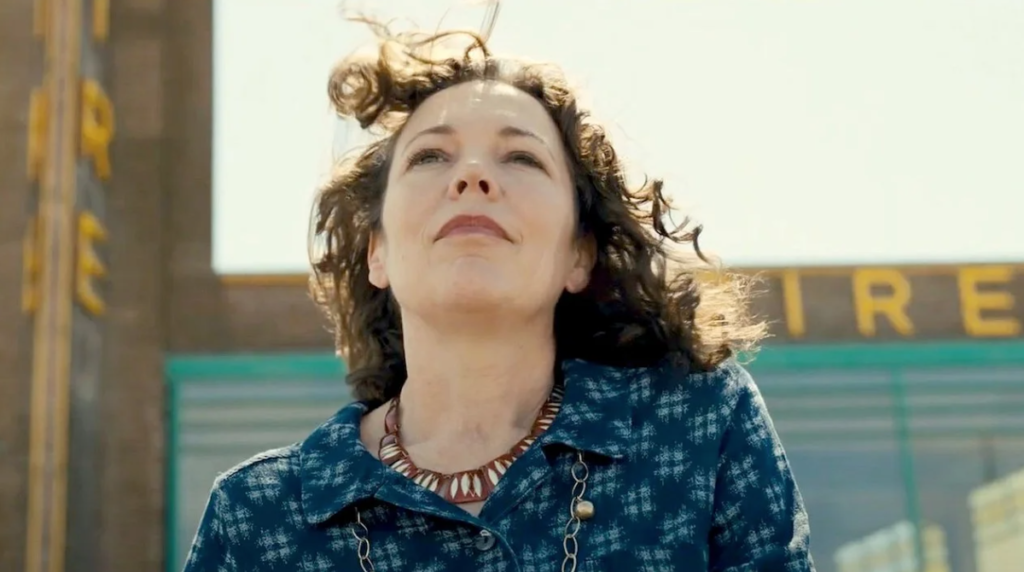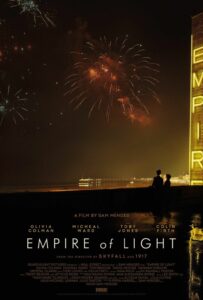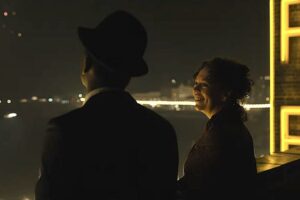Glass Onion: A Knives Out Mystery | Written and Directed by Rian Johnson | 139 min
One of 2019’s unalloyed treasures, Knives Out brought ensemble mysteries in an Agatha Christie vein very much back into the mainstream, with a delightful dollop of eating the rich. No shade on Kenneth Branagh’s efforts to do the same with the Christie material. but Johnson hit it out of the park with his original idea. Amazingly he’s done it again the second time out, with a bigger, somewhat trashier, a lot more pop-culture conscious, but just as clever and class-conscious murder mystery.
This time southern gentleman detective Benoit Blanc (Daniel Craig, having all the fun) joins a group of hyper-wealthy “disruptors” — including a terrific Kate Hudson, Jessica Henwick, Kathryn Hahn, Janelle Monáe, Leslie Odom Jr, and Dave Bautista (providing a Spectre reunion) — at a resort locale, suggesting a Last of Shiela inspiration, the James Coburn millionaire-is-murdered mystery from 1973. They’ve all found their fortunes through the grace of an Elon Musk-esque billionaire (Edward Norton), and all have reason to want him dead.
Aside from a few flashbacks, the action is restricted to a palatial Greek island the likes of which only James Bond has seen before — and I wouldn’t be surprised if Johnson is nodding to some of those Craig-era Bonds in this film. He’s certainly having some fun with a direct costume reference to PT Anderson’s Magnolia and a few other Easter eggs if you’d care to look for them.
With room for a passel of cameos — including one that I think confirms Blanc’s sexuality — the film’s corkscrew plot, which both unwinds and rewinds as we go along, is a wonder of cinematic construction just like the first. This film will be arriving on Netflix in December, and it will be a holiday favourite — count on it.
Empire Of Light | Written and Directed by Sam Mendes | 119 min
On a different day, Sam Mendes’ semi-autobiographical drama set in a gorgeous soft-seated cinema in an English seaside town circa 1980 would’ve probably felt too saccharine to be taken seriously, far too romantic and too hokey. But, following two features and with my defences down — and star Olivia Colman present, along with cinematographer Roger Deakins, as well as Mendes himself — I was swept away by their picture.
In it, Colman is Hilary, a middle manager at the cinema having an affair with her married boss (Colin Firth). A new employee, Stephen (Micheal Ward), connects with Hilary and shares his experience as a Black man in Thatcher’s Britain — hint, it sucks. As their friendship turns romantic, she also reveals how fragile her mental state actually is.
The chemistry of that central pairing is wonderful — Ward is a genuine discovery, and Colman is as vivid and sympathetic as I’ve ever seen her, her best role since The Favourite.
What works less well is the idea of cinema as a source of healing, with projectionist Toby Jones as the prophet of magical light. Probably best to stick with Cinema Paradiso for that lesson. It’s disappointing this part of the story is so ham-fisted, since Deakins’ incredible work —genuinely creating that cinema magic as visual text — is some of the best of his career. You could’ve killed the dialogue and just enjoyed Trent Reznor and Atticus Ross’ lovely score with the imagery for two hours. I would’ve still been happy with the picture, despite its failings.














